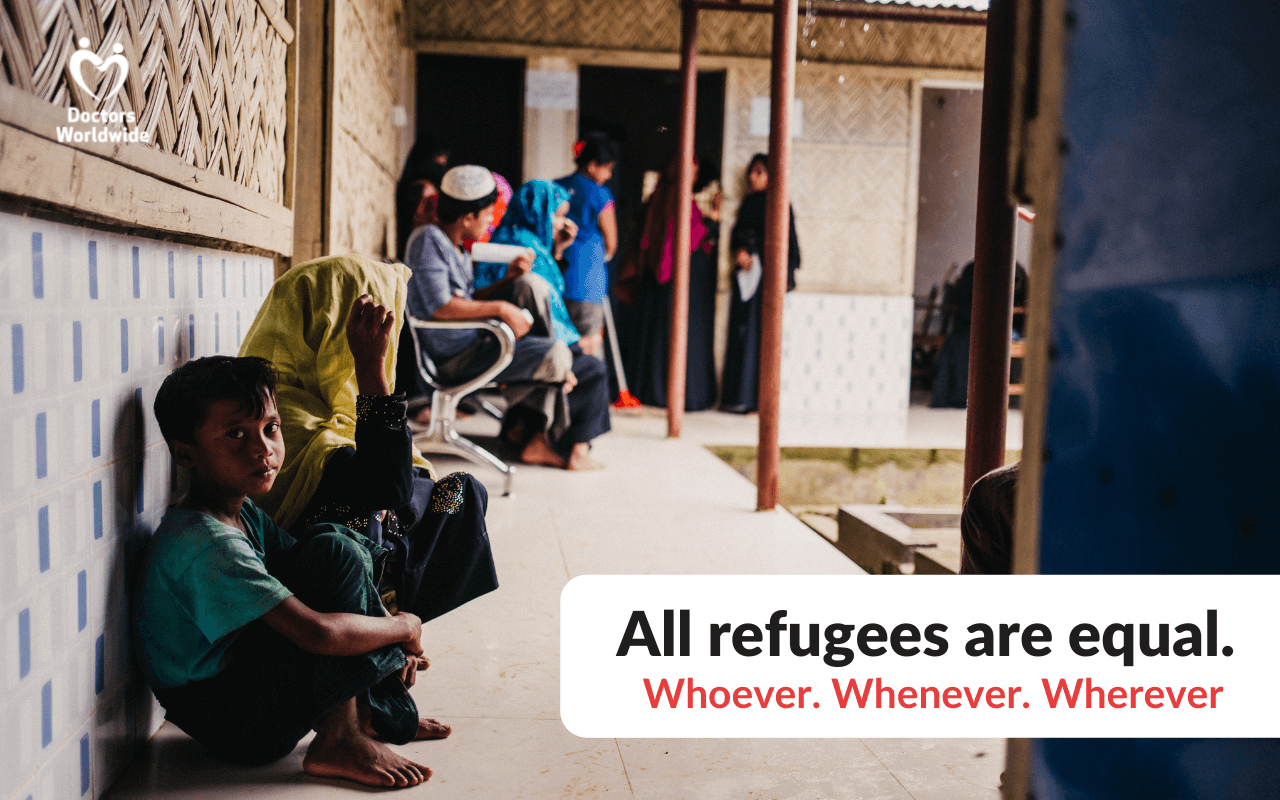Would you ever be able to leave your house, job, friends, family, and the life you know of behind you due to political instabilities/war? I’m sure the majority of us cannot imagine being forced out of our homes with nowhere to go, let alone think about having to live through the consequences of a devastating war – yet this is the heartbreaking reality for the 26M+ refugees out of 84M+ people who have been forcibly displaced worldwide (UNHCR, 2021).
We may think things can only get better. Surely refugees worldwide cannot experience anything worse than what they are already going through? Surely the suffering must end somewhere? Those in power must be doing all they can to help? Unfortunately, this is not the case.
The recent Ukrainian refugee crisis has exposed the already present discriminatory structures, processes and attitudes elevating the needs of some refugees over others, highlighting the way racism and bias critically affect national and international refugee responses. Whilst media coverage has consistently profiled the awful situation Ukrainian refugees currently face, with communities and countries coming together to help those in need, this wave of support only further emphasises the silence and isolation many Syrian and Afghani refugees faced after being forced to flee, receiving much less media attention or breadth of support from the same nations currently helping those from Ukraine who need similar access to resources, food, and shelter.
Furthermore, from our own team’s experience serving refugees within camps, and supporting the development of their healthcare services (e.g., DICE & PGF), we know that the risk of susceptibility to both communicable and non-communicable diseases is high amongst refugees. Refugee communities are often forced to undertake long and exhausting journeys without access to basic resources (i.e., food and water, sanitation and shelter). Healthcare is perceived as a privilege which they will not receive, making them more prone to catching dangerous diseases such as measles, and food or waterborne illnesses. Additionally, they are also more at risk of accidental injuries, hypothermia, burns, unwanted pregnancy and delivery-related complications, and various non-communicable diseases due to the migration experience, as well as restrictive entry and policies (WHO, 2022).
Even if these communities in need receive entry into safer environments, they still remain the most vulnerable members of society, facing xenophobia, discrimination, difficult working conditions and restricted access to healthcare services. In addition, they also may face low levels of health literacy, poor cultural competency among health providers, stigma, and inadequate interpreting services (WHO, 2022).
When refugees around the world are carrying the same amount of pain, loss and anguish, whilst trying to protect what they have left, and find a new place to restart and heal – why are some given more support than others?
At Doctors Worldwide, we believe that access to quality healthcare is not a privilege, it is a human right, and we work to make that a reality for everyone in need. This World Refugee Day, reflect on the way your own perceptions of a refugee may have been influenced by contrasting media and press attention, and consider the way this may have therefore affected your support for those in need, differing between countries and communities whether intentional or not.
Every refugee is equal, no matter who they are, where they are from, or when they require help. No refugee is less or more deserving of our help, support and empathy.


